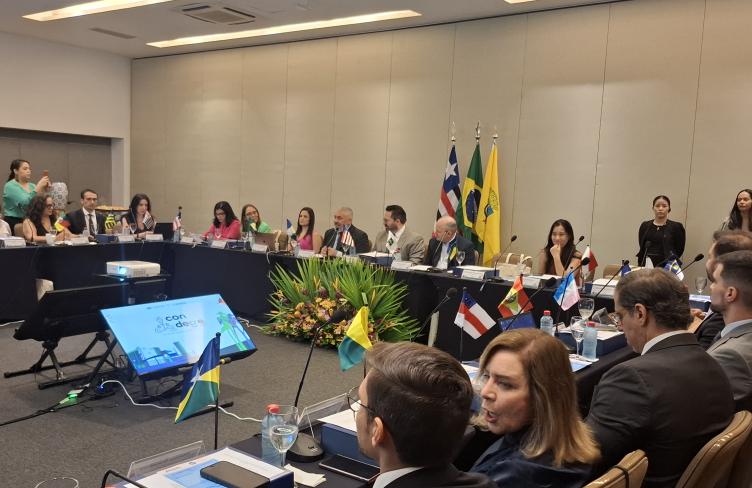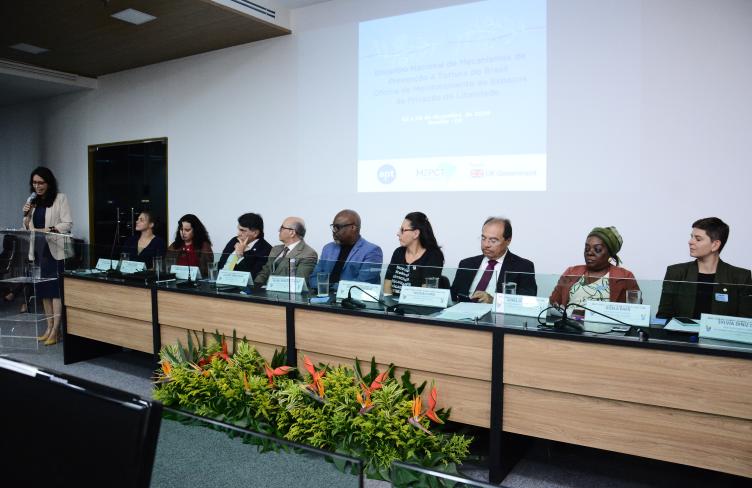On 14 October 2020, APT co-organised an expert panel to explore good practices and the development of guidelines on non-coercive interviewing and safeguards in the context of transnational organised crime. This online webinar was an official side-event to the meeting of State parties to the United Nations Convention on Transnational Organized Crime (UNTOC) taking place in Vienna.
APT organised this event in partnership with UNODC, OHCHR, the Norwegian Centre for Human Rights (NCHR), and the Norwegian Embassy in Vienna. APT’s Deputy Secretary General, Audrey Olivier Muralt, moderated the discussions.
H.E. Kjersti E. Anderson, Norwegian Ambassador to Vienna delivered opening remarks, restating Norway’s commitment to non-coercive investigative interviewing methods. Ms. Candice Welsch, UNODC Deputy Director of the Department of Operations, and Ms. Cécile Aptel, OHCHR Chief of the Rule of Law and Democracy Section also delivered opening remarks, highlighting the synergies between human rights, the rule of law and effective criminal justice processes.
In a panel discussion, three expert speakers shared their experience from different professional and regional perspectives. Dr. Ivar Fahsing (from Norway), Detective Chief Superintendent shared his first-hand experience as an investigator, and advocated for a holistic vision of law enforcement. He reminded the core principles behind interviewing: getting accurate information, and not extracted confessions at all costs, which could potentially lead into coercion and/or torture. Ms. Santanee Ditsayabut (from Thailand), Provincial Chief Public Prosecutor spoke of the Thai experience with non-coercive interviewing and gave her prosecutorial point of view on the issue. She emphasised how investigation is closely linked with prosecution, and how from a prosecution point of view, having effective and impartial investigation is absolutely essential. Mr. Sean Tait (from South Africa), Director of the African Police Civilian Oversight Forum, presented the initiative to develop international guidelines on non-coercive interviewing and safeguards, and spoke of the need for such a document in light of his experience in police reform across Africa.
The recording of the side-event can be watched here.
The APT, together with the NCHR and the Anti-Torture Initiative, coordinates the development of international guidelines on non-coercive interviewing and safeguards. Read more information on this project here.


